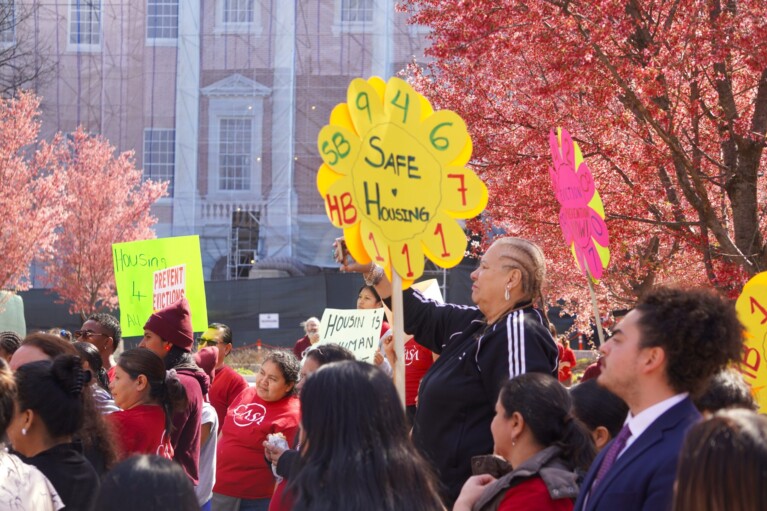Opinion: Here’s Why We Need an Environmental Human Rights Amendment in Md.

By Susan Olsen
The writer is a board member for Dorchester Citizens for Planned Growth.
The Maryland Environmental Human Rights Amendment is a bill being heard this session in the Maryland General Assembly. It is being sponsored by Delegate Wanika Fisher in the House and Senator Will Smith in the Senate. House Speaker Pro Tempore Delegate Sheree Sample-Hughes is a co-sponsor.
The amendment would provide:
(A) That each person, as a matter of basic human dignity, has a fundamental and inalienable right to a healthful, sustainable environment.
(B) That the State, as trustee, shall protect, conserve, manage and enhance Maryland’s natural and cultural resources, including its air, lands, waters, wildlife, and ecosystems, for the benefit and enjoyment of both present and future generations.
If the bill passes in both the House and the Senate with a three-fifths majority, it will go by referendum directly to Maryland voters in the November 2022 election. Polling shows that at this time, 76% of Maryland voters are in favor of the amendment. If passed, it would amend the Maryland Bill of Rights in our Maryland State Constitution.
Many people assume that we already have a right to a clean and healthy environment. Sadly, that is not true in practice. Although in 1973, the General Assembly enacted the Maryland Environmental Policy Act, which states “Each person has a fundamental and inalienable right to a healthful environment,” it is now all but forgotten. The Maryland Environmental Human Rights Amendment gives us the opportunity to restore the original intention of MEPA and hold state agencies responsible for enforcing it. (It does NOT give private citizens the right to sue neighbors or businesses.)
The need for the amendment is plain from the saga of the Valley Proteins chicken rendering plant in Linkwood, Dorchester County. Dorchester Citizens for Planned Growth (DCPG) has been raising concerns about that plant since 2012. The group knew from water sampling and testing that the Transquaking River was becoming polluted by the wastewater and sludge being dumped in the river and on the surrounding land by Valley Proteins, Inc.
The group held numerous meetings with the Maryland Department of the Environment and the company’s executives to no avail. The situation grew worse: the surrounding air smelled wretched and, about three or four years ago, the group became alarmed that the pollution might be seeping into the regional aquifer, tainting their drinking water. The group reached out to Delegate Sheree Sample-Hughes who did a legislative inquiry. Still nothing.
The Maryland Department of the Environment continued to issue “zombie permits,” permits carried on for years beyond their expiration date without performing the required updates. Valley Proteins has been working under a permit that expired in 2006.
The last meeting with both MDE and Valley Proteins executives took place at the Linkwood Fire Hall on Nov. 16, 2021. MDE had finally proposed a new permit, after several local nonprofit organizations threatened legal action.
About 100 people were in attendance. Some residents testified that their water tasted “funny.” Others said that they frequently could not open their windows because the smell was so bad. One man testified that his dog would not go outside on bad days. The owner of Higgins Mill Pond lost two much loved dogs who had seizures and died two hours after they were allowed to swim in the pond.
A month after the hearing, Matt Pluta of ShoreRivers sent MDE some drone photos of Valley Proteins illegally discharging polluted wastewater in the Transquaking River in Linkwood. MDE closed the plant — for only two days! The company was up and running again on Christmas Eve, apart from a temporary requirement that its wastewater be disposed of elsewhere.
Clearly, any environmental rights we assume we have are not being enforced. That is why we need a Maryland Environmental Human Rights Amendment.




 Creative Commons Attribution
Creative Commons Attribution